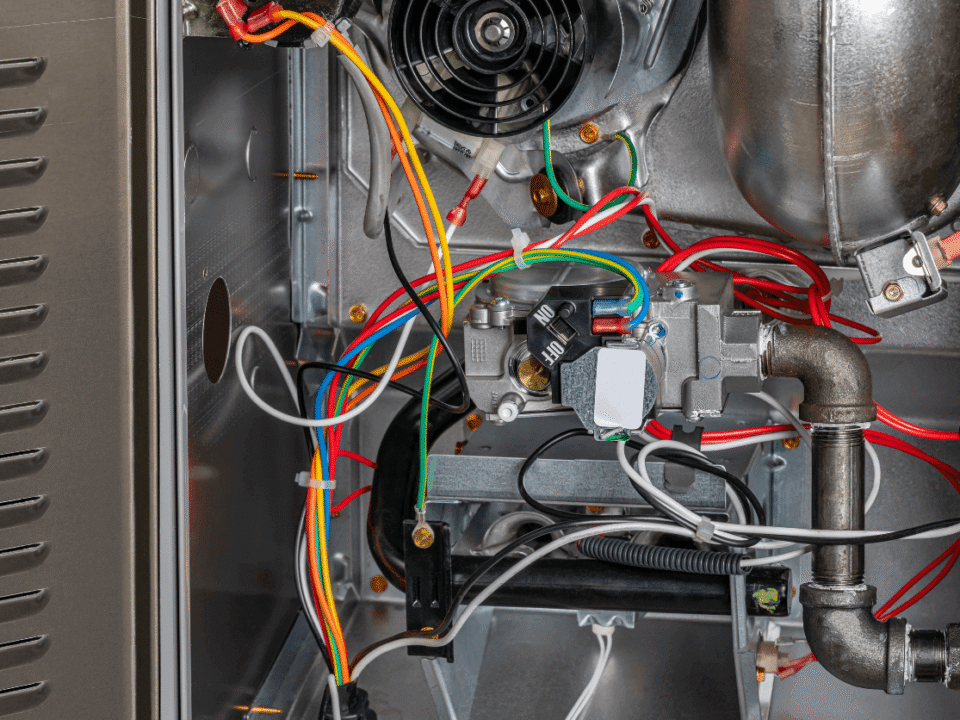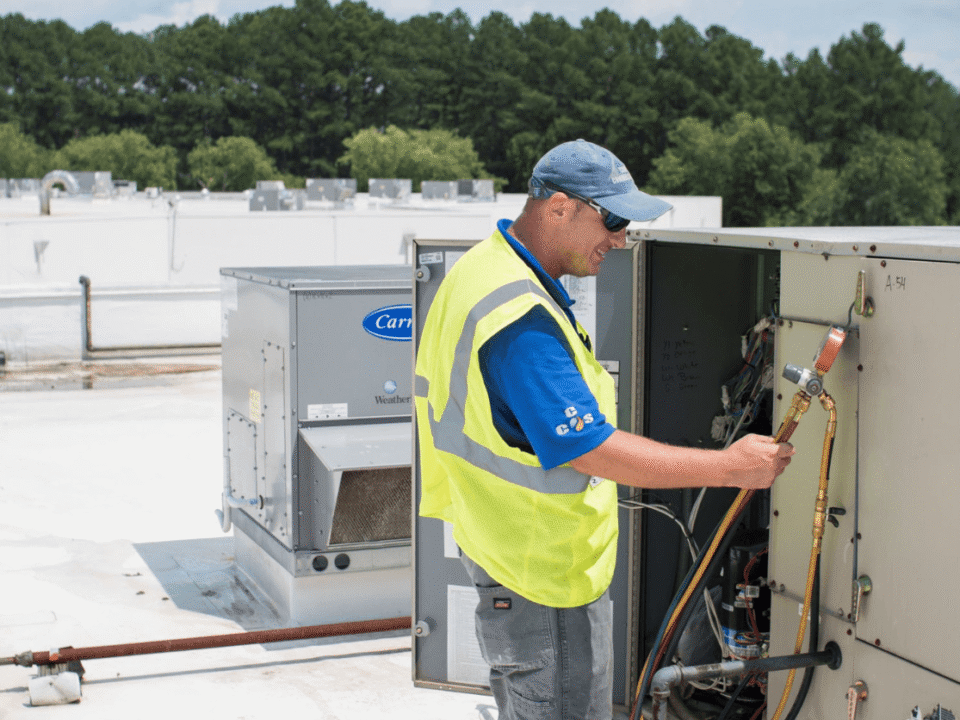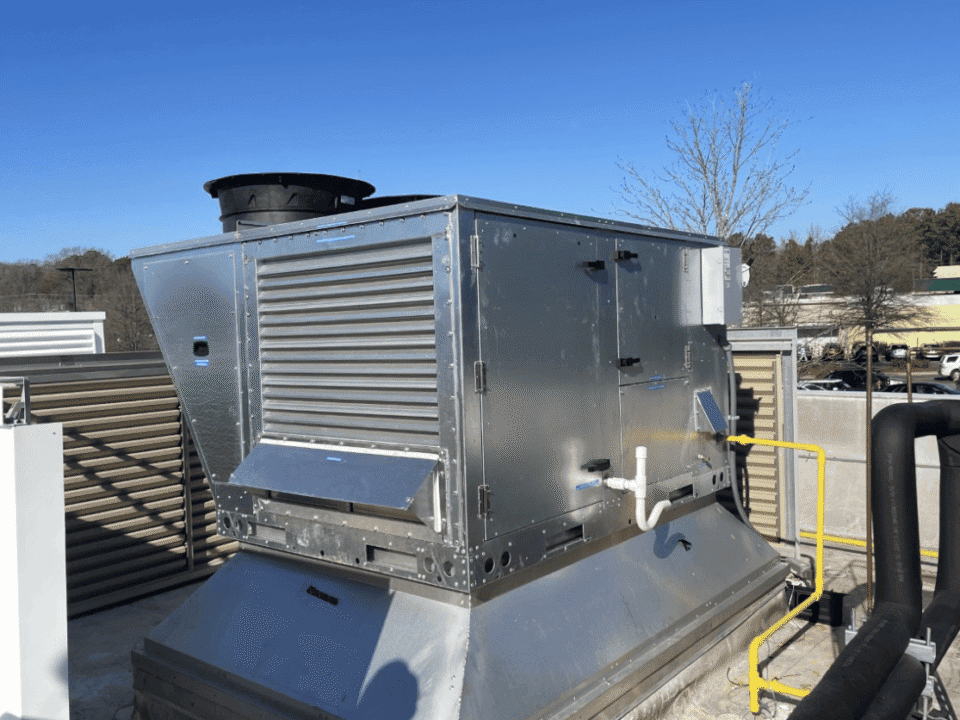
Decoding HVAC System Noises: What Your HVAC is Trying to Tell You
July 24, 2025
Top 5 HVAC Failures to Avoid as the Seasons Change
August 21, 2025How to Spot Signs Your HVAC System Was Overworked This Summer
Red flags that your system needs post-summer HVAC care
As summer begins to wind down and we move into August, both homeowners and business owners across the Triangle are starting to breathe a little easier, literally. With average daytime temperatures soaring well into the 90s this year, your HVAC system has likely been working overtime to keep your home or commercial property comfortable. But while you may have stayed cool inside, your HVAC system might be feeling the heat more than you think.
Recognizing the signs that your HVAC system has been overworked can help you avoid costly repairs or unexpected breakdowns in the months ahead. This blog post will explore the most common red flags of HVAC strain and what you can do to protect your system for the rest of the year and beyond.
Why HVAC Overwork Happens
In North Carolina, the combination of heat, humidity, and long cooling seasons places exceptional demands on air conditioning systems. Add in factors like poor insulation, aging equipment, or improper maintenance, and the strain intensifies. Residential systems often deal with fluctuating occupancy and long hours of use, while commercial units contend with larger loads, inconsistent usage patterns, and more complex zoning needs.
Signs of HVAC Overwork in Residential Systems
For homeowners, spotting early signs of HVAC stress can save you from sudden system failures or high energy bills. Here are the key indicators:
- Unusually High Energy Bills: One of the most obvious signs is a spike in your utility costs without a corresponding increase in usage. If your July and August bills were significantly higher than normal, it could mean your HVAC system is working harder than it should, possibly due to a clogged filter, refrigerant leak, or aging components.
- Inconsistent Cooling: If some rooms in your home feel much warmer or cooler than others, it could indicate that your system is struggling to distribute air evenly. This may be a sign of duct issues, failing blowers, or an overtaxed compressor.
- System Running Constantly or Short Cycling: An HVAC system that rarely shuts off is clearly under strain. Conversely, short cycling, where the unit turns on and off frequently without completing a full cooling cycle, is another red flag. Both behaviors indicate inefficiency and possible component damage.
- Strange Noises or Odors: Grinding, squealing, or banging sounds can mean that parts like belts or motors are under duress. Unusual smells such as burning, musty, or chemical odors could point to electrical issues, microbial growth, or refrigerant leaks.
- Humidity Issues Inside the Home: North Carolina summers are famously humid, but your HVAC system should still be able to manage indoor moisture levels. If your home feels damp or clammy, your system might be overwhelmed or undersized.
Warning Signs in Commercial HVAC Systems
For commercial properties, overworked HVAC units can cause major disruptions: not just discomfort, but also equipment failures, productivity losses, and increased operational costs. Here’s what building managers and business owners should look for:
- Uneven Cooling Across Zones: If tenants or employees are complaining that certain parts of the building are too warm or too cold, it may suggest your system’s zoning controls are malfunctioning or that airflow is imbalanced. Commercial ductwork and thermostats often need calibration after a hard summer season.
- Excessive Noise from Rooftop Units: Rooftop HVAC units under duress often emit louder-than-usual vibrations, buzzing, or grinding noises. These may signal issues with fans, motors, or compressors that have been overused during peak cooling periods.
- Frequent System Alarms or Lockouts: Modern commercial HVAC systems are equipped with sensors and alarms. If your building automation system (BAS) shows frequent faults or has experienced shutdowns, it’s likely the equipment was pushed past its limits.
- Increased Employee or Tenant Complaints: Comfort complaints can indicate more than personal preference – often they reflect genuine equipment fatigue, airflow issues, or failing thermostats.
- Elevated Operating Costs: Electric bills climbing month-over-month may reflect aging compressors, clogged filters, or refrigerant loss, all of which are common after a season of intense usage.
Learn more about common A/C problems in commercial systems and how to prevent them on our blog.
What Causes HVAC Overwork?
Understanding the root causes can help you avoid system overload in the future. Common culprits include:
- Dirty Filters: Reduced airflow causes your system to run longer and harder.
- Improper Sizing: An undersized unit may never reach the desired temperature.
- Lack of Preventive Maintenance: Skipping seasonal tune-ups leads to inefficiencies.
- Leaky Ductwork: Wasted air makes the system work more to achieve set temperatures.
- Aging Equipment: Older systems (10+ years) simply can’t keep up as well.
Proactive Steps for Homeowners and Property Managers
Now is the ideal time to take action before cooler months arrive. Here’s how you can get your system back on track:
- Schedule a Post-Summer Inspection: Have our HVAC professionals assess the system for wear and tear. For commercial units, an in-depth check of zoning systems, control panels, refrigerant levels, and RTUs is essential. For homes, a full tune-up can identify aging parts before they fail.
- Replace or Upgrade Filters: Homeowners should change filters monthly during the summer. Commercial buildings should follow a set filter schedule based on usage and system specs.
- Clean Condenser and Evaporator Coils: Dirty coils reduce efficiency and make your system work harder. A thorough cleaning is especially important after a long summer of heavy use.
- Evaluate System Age and Efficiency: If your system is nearing the end of its lifespan, now might be the time to explore energy-efficient upgrades. New systems can dramatically lower energy usage and improve indoor comfort for both homes and businesses.
- Seal and Insulate: Reducing load demand on your system can prevent overwork. Check insulation levels, seal leaky windows, and evaluate duct integrity.
Get Ahead of Fall: Why Timing Matters
While August may still be hot, it’s also the perfect time to prepare your HVAC system for fall and winter. Many homeowners and building managers wait until the first cold snap to book service, but by then, HVAC professionals are swamped. Getting ahead of the curve ensures better service availability and peace of mind.
Also, if your system suffered damage from overuse this summer, those issues could come back to bite you during winter heating – when you least expect it. Contact us today to schedule your late-summer inspection or to discuss options for system upgrades.



